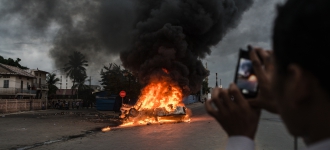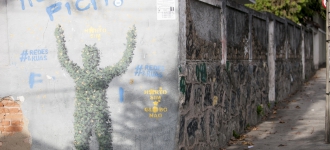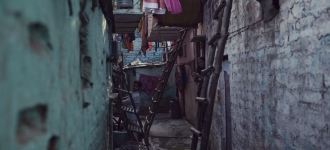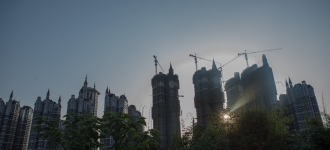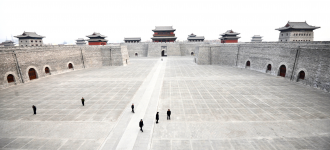The development of urban space is closely related to human rights and their enforcement; apart from the right of assembly, housing is one of the most obvious contact points between the two spheres. An aggressive intervention into the city fabric for the sake of a luxury housing project or a planned business district is only possible when residents are not protected by an invisible force field, namely the interests of economically or politically-significant owners. The Cambodian (A Cambodian Spring), Chinese (The Chinese Mayor, Dream Empire), Brazilian (One Man, One City, Three Evictions), Polish (Resettlement), and Indian life stories (Tomorrow We Disappear) presented in this block reflect on this problem on a personal, communal, urban, global, and universally human level, and address the increasing scope of abuse and vulnerability experienced in housing. People are arbitrarily forced to leave their homes and find new shelter. Others, due to the fear of losing their homes, are forced to become part of a mechanism – either as the executive hand of stakeholders, or by constructing fictional marketing identities – that recreates, consolidates and normalizes social inequalities. The conflicts presented here illustrate the need for long-term urban development strategies that are sensitive to social issues, including the need for a responsible housing policy. In the absence of adequate brakes and directives, many long neglected and/or marginalized neighborhoods can disappear when the ownership of property is deemed illegal in order to get those properties onto the real estate market. In these cases, physical violence and the use of law enforcement will only serve to (seemingly) vanquish a situation perceived as problematic, instead of finding a real solution. Although not limited to their struggles, these films typically portray the battle of the underrepresented groups that are fighting for survival on a daily basis, and who have little or no possibility to raise awareness of their situation on a global scale. The thematic block also draws attention to the fact that every social class is affected by this issue; although they might not be comparable, everyone has to make serious sacrifices. The shadowy side of "dream empires" that are driven by international competitiveness and the need for constant economic growth is that the most vulnerable groups will be walked over and people will be unjustly positioned against large-scale urban projects, mega-highways, or Olympic facilities. The debate surrounding the consequences of gentrification is not settled yet. Instead of merely urban solutions or sweeping issues under the rug, solutions with both urban and social considerations are needed - now more than ever.
Gábor Fehér
| Chris Kelly • UK • 2017 • 126min • Khmer | Nicky Milne • Brazil • 2017 • 21min • Portuguese | Jimmy Goldblum, Adam Weber • India, USA • 2014 • 84min • Hindi, English |
| David Borenstein • Denmark • 2016 • 73min • English, Chinese | Filip Antoni Malinowski • Austria, Poland • 2012 • 73min • Polish | Zhou Hao • China • 2015 • 89min • Chinese |

